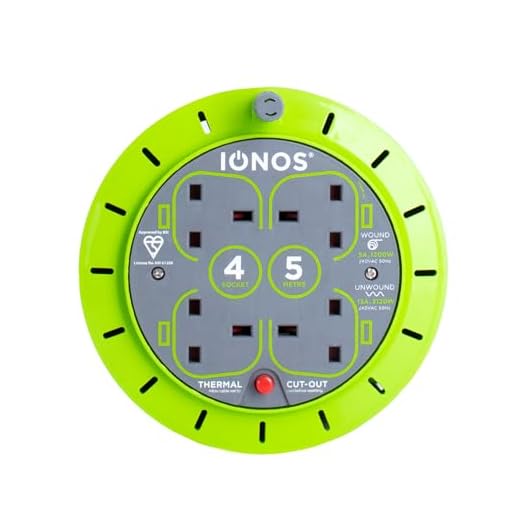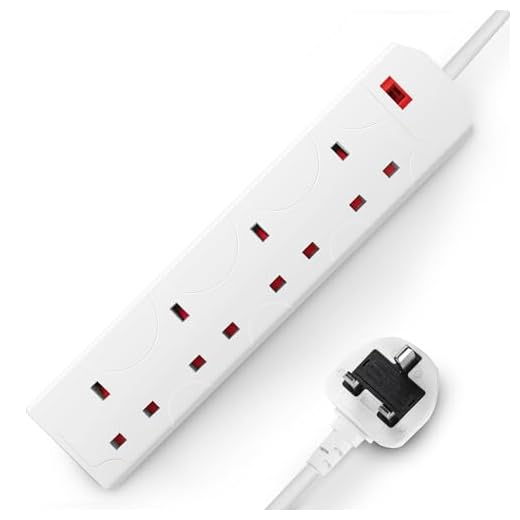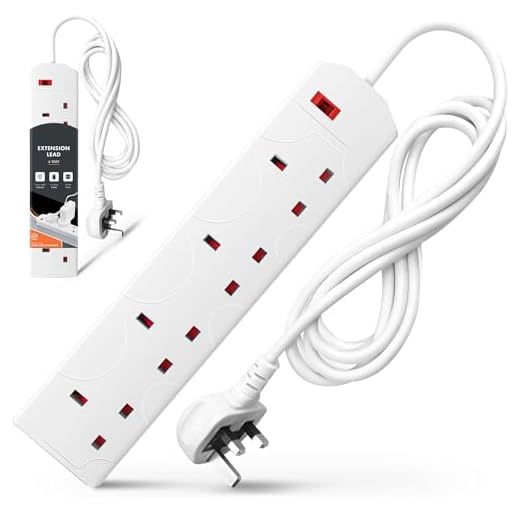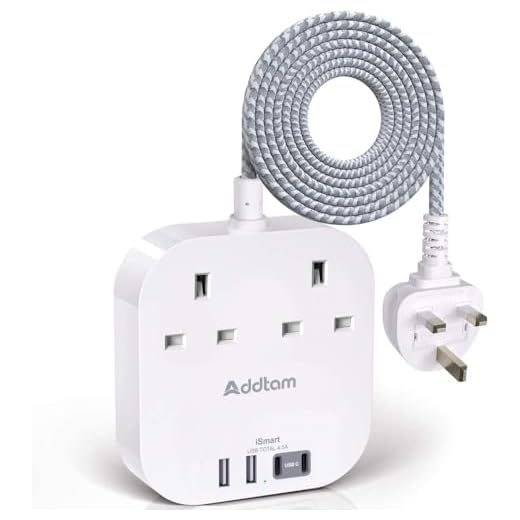Extension leads are indispensable tools in modern households, offering convenience and flexibility in powering various electrical devices and appliances. Whether you need to extend the reach of a power outlet or accommodate multiple devices in one location, these solutions provide a practical answer. In the UK, where electrical safety standards are stringent, selecting the right product is crucial for both functionality and safety.





Types of Extension Leads
Extension leads come in a variety of types to suit different needs and applications:
-
Basic Extension Leads: These standard models feature multiple sockets and a single cable for straightforward extension of power outlets.
-
Surge-Protected Extension Leads: Incorporating surge protection, these options safeguard sensitive electronics from voltage spikes.
-
Outdoor Extension Leads: Designed for external use, these extension cables are weatherproof and often feature rugged construction to withstand the elements.
-
Heavy-Duty Extension Leads: Built to handle high-power appliances and tools, these robust variants have thicker cables and a durable design.
Key Considerations Before Buying
Before purchasing, consider the following factors to ensure your chosen extension lead meets your requirements:












-
Length: Choose a product with sufficient cable length to reach your desired location without stretching or straining.
-
Sockets: Determine how many outlets you need based on the number of devices you plan to connect.
-
Surge Protection: For valuable electronics, consider a surge-protected model to safeguard against voltage fluctuations.
-
Usage Environment: Select a design suitable for indoor or outdoor use depending on your intended application.
-
Cable Thickness: Opt for options with thicker wiring if you require higher power capacity and increased durability.
Pros and Cons of Extension Leads
Understanding the advantages and limitations of these devices can help you make an informed decision:
Pros:
-
Flexibility: Allow multiple devices to be powered from a single outlet.
-
Extended Reach: Enable you to access power in locations that might otherwise be out of reach.
-
Variety: Available in many types and lengths to suit different needs.
-
Portability: Can be easily relocated as needed, offering convenience and versatility.
Cons:
-
Tripping Hazards: Improper placement may lead to potential safety risks.
-
Overloading Risks: Exceeding the rated capacity can result in overheating and fire hazards.
-
Wear and Tear: Long-term use may cause degradation, meaning periodic replacement could be necessary.
-
Limited Capacity: Not suitable for powering high-demand appliances beyond their designed capacity.
Usage Tips
To ensure safe and effective use, follow these guidelines:
-
Avoid Overloading: Do not exceed the maximum load capacity to prevent overheating.
-
Inspect Regularly: Check for damage, fraying, or wear and replace if necessary.
-
Route Cables Safely: Keep products away from heat sources, water, and sharp objects.
-
Unplug When Not in Use: Disconnect from the power outlet to minimise risks when idle.
Shopping Online for Extension Leads
When shopping online, consider the following tips to make an informed decision:
-
Read Product Descriptions: Pay attention to details such as cable length, socket type, and additional features like surge protection.
-
Check Customer Reviews: Reviews can provide insight into quality, performance, and durability.
-
Compare Prices: Evaluate different retailers to ensure you get the best value without sacrificing quality.
-
Look for Deals: Take advantage of discounts, promotions, and bundle offers.
Choosing the Right One
Selecting the right extension lead depends on your specific needs, environment, and budget. Consider factors such as cable length, socket configuration, surge protection, and overall build quality. If unsure, choose products from reputable brands known for quality and reliability, and prioritise safety features like surge protection for valuable electronics.
Caring for Your Extension Lead
To prolong the lifespan and ensure safe operation, follow these care tips:
-
Avoid Cable Damage: Handle with care to prevent kinks, twists, or crushing that can lead to internal damage.
-
Store Properly: Coil the cable loosely when not in use and store in a cool, dry place away from direct sunlight.
-
Inspect Regularly: Check for signs of wear or damage, and replace when needed.
-
Clean as Needed: Wipe with a damp cloth to remove dust, avoiding abrasive cleaners.
Frequently Asked Questions
-
Can I plug extension leads into other extension leads?
No – daisy-chaining increases the risk of overloading and poses a fire hazard. It’s best to plug extension leads directly into a wall socket. -
Can extension leads be used outdoors?
Yes, there are models designed for outdoor use with weatherproof construction and protective covers. -
How many devices can I plug into an extension lead?
The number of devices depends on the product’s rated capacity. Avoid overloading to prevent overheating. -
Can I use extension leads with high-power appliances like heaters or air conditioners?
It’s generally not recommended; plug high-demand appliances directly into a power outlet. -
How can I prevent tripping over extension leads?
Secure cables along walls or baseboards using clips or adhesive organisers.
In Conclusion
Extension leads are versatile and practical tools for extending the reach of power outlets in homes and workplaces. By understanding the different types, key buying factors, and best usage practices, you can make a well-informed choice that balances performance with safety. Invest in a high-quality product, prioritise essential features like surge protection, and maintain your device properly to enjoy reliable performance for years to come.






